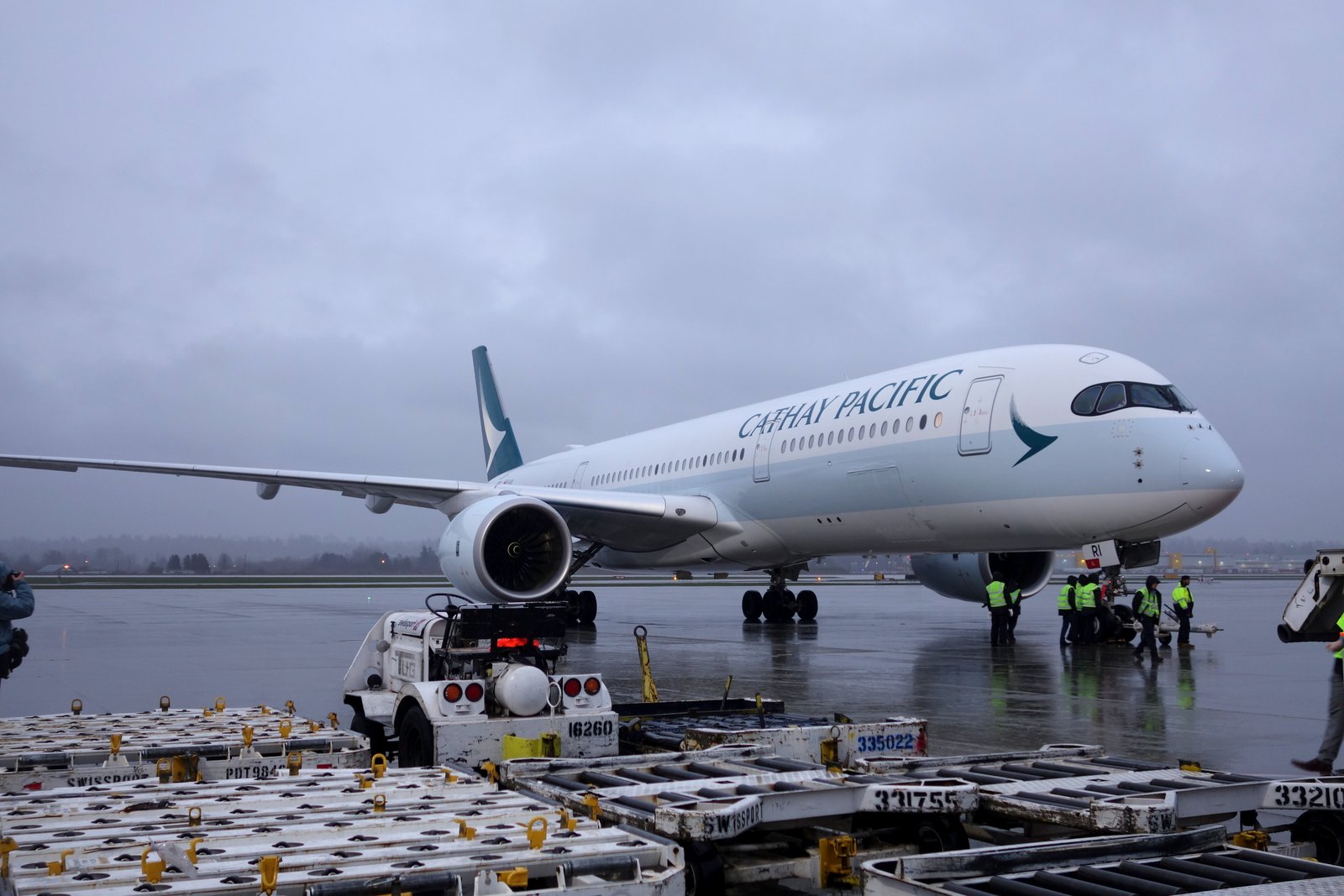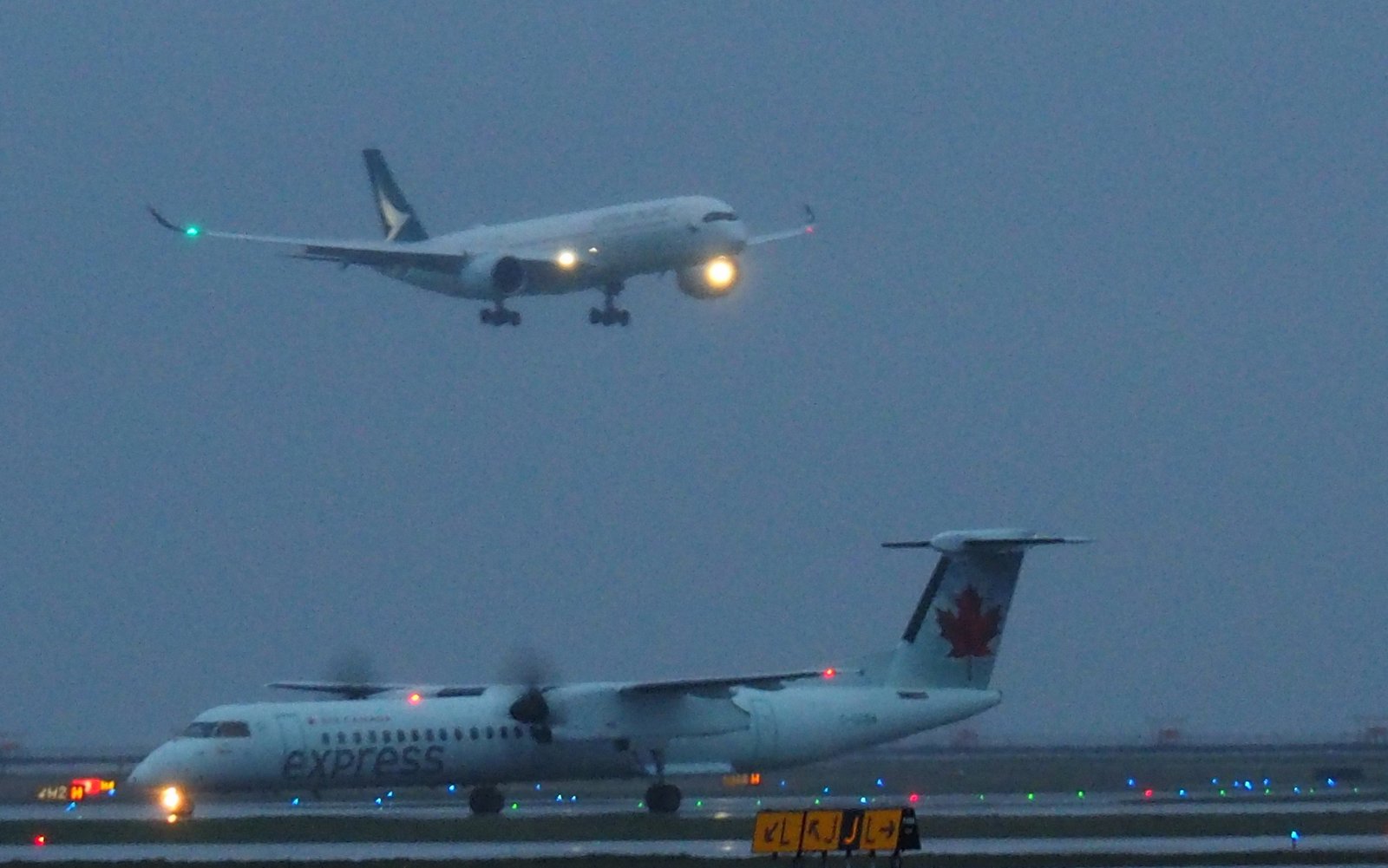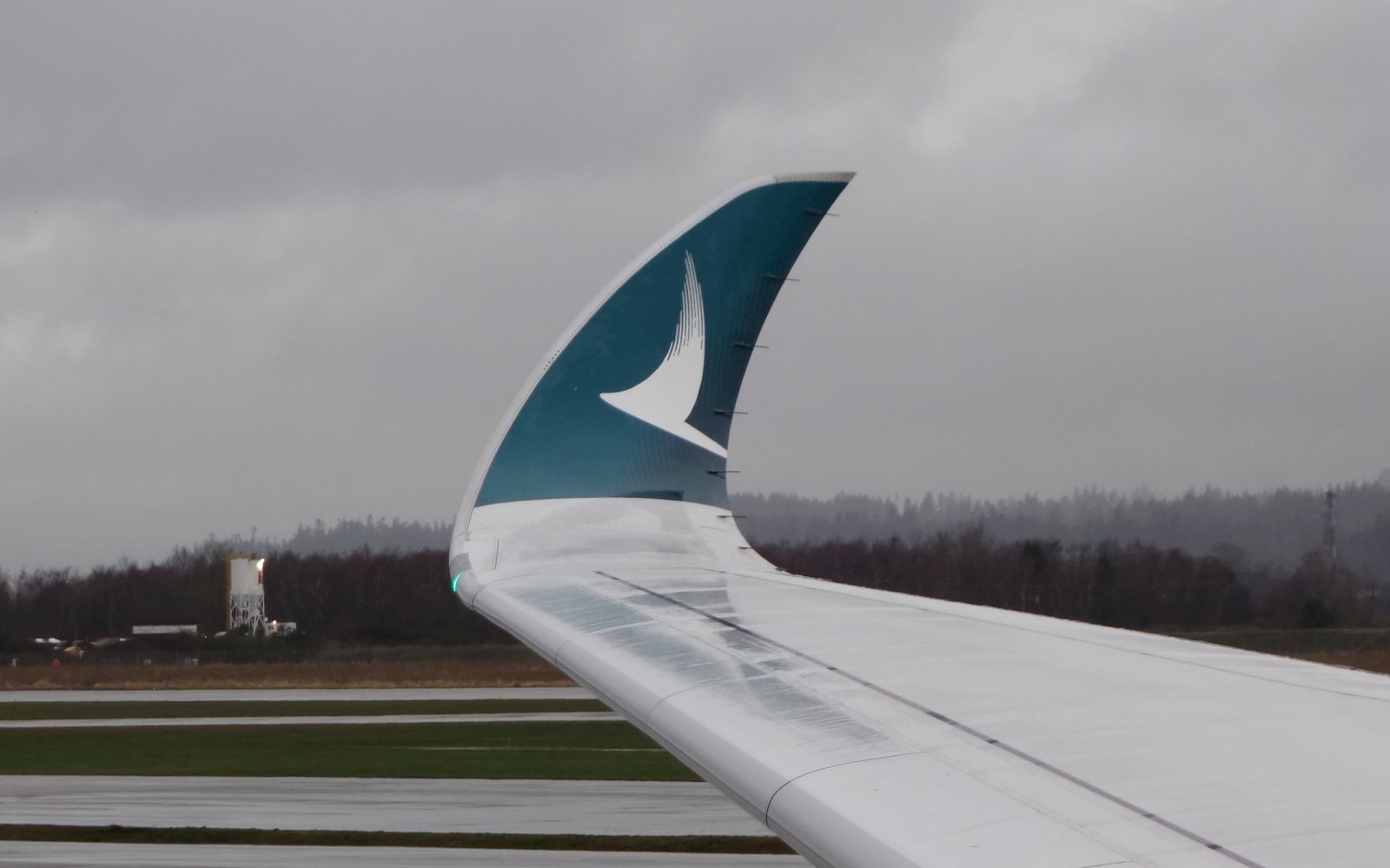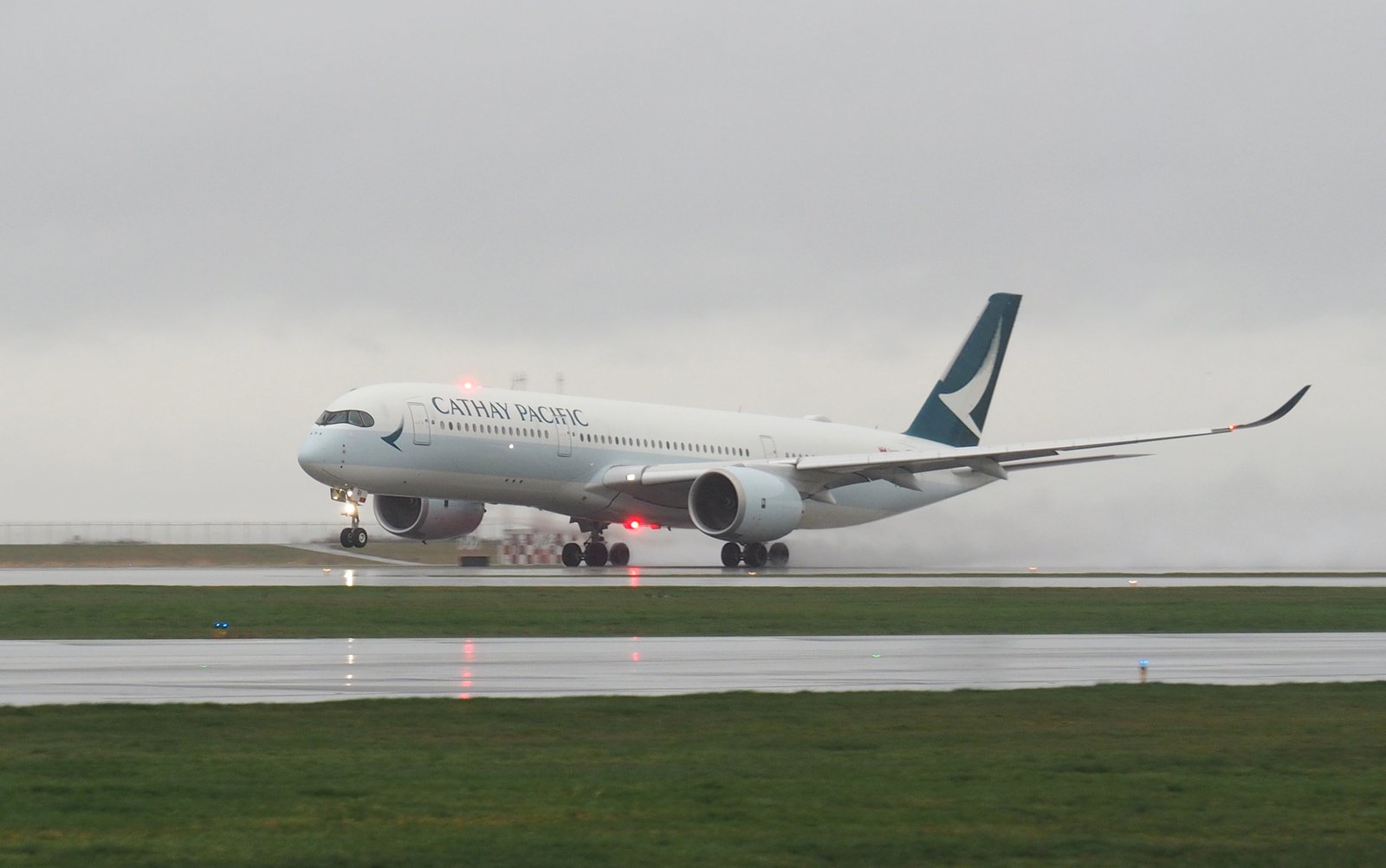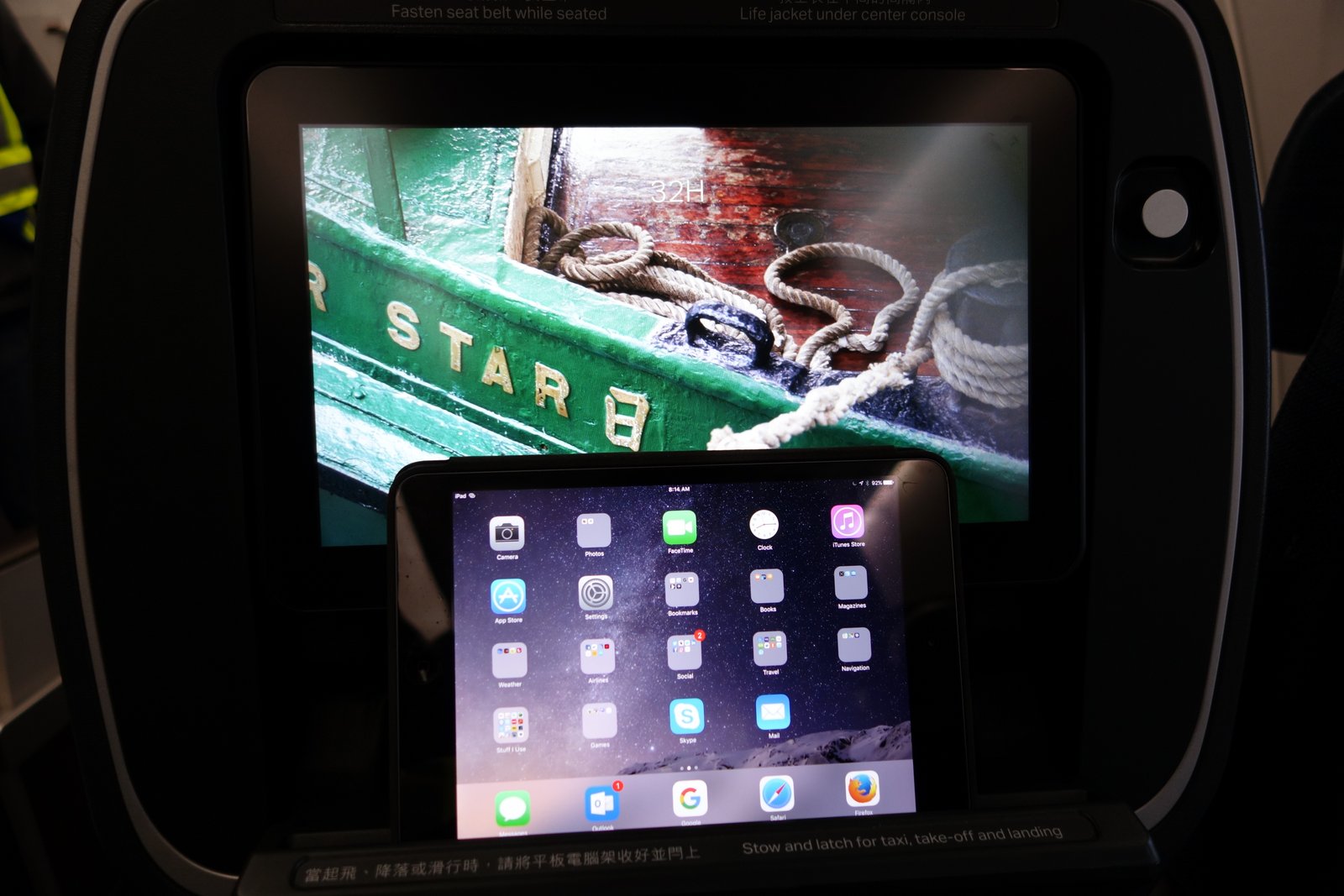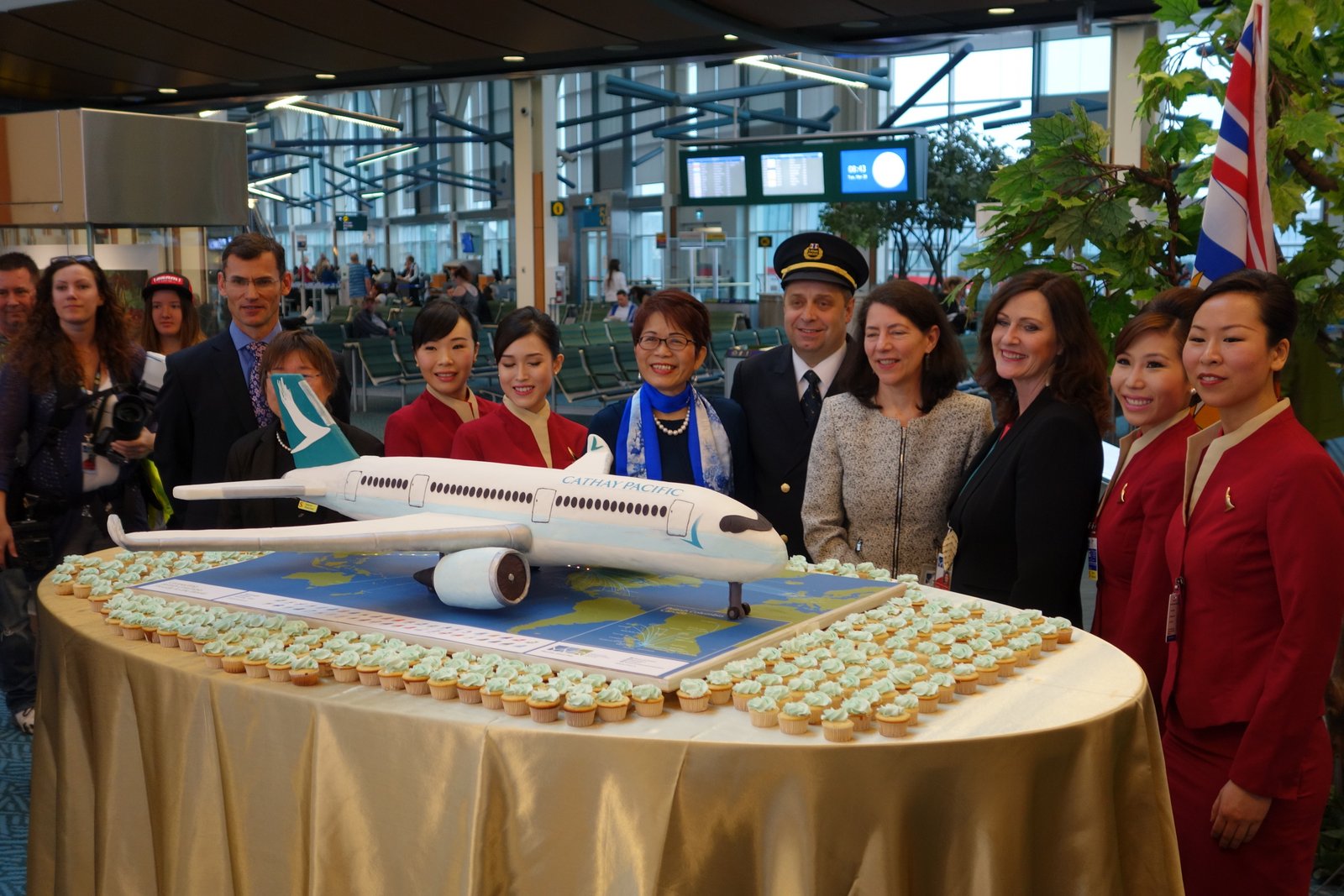Written for AirlineReporter.com
Almost 35 years ago, Cathay Pacific Airways (CX) began its international expansion to North America, flying a Boeing 747-200 from Hong Kong (HKG) to Vancouver, BC (YVR). It was the first airline to fly nonstop between the two key Pacific Rim cities, and on Tuesday morning, Cathay Pacific introduced a new aircraft type on the route.
The airline’s Airbus A350-900XWB, B-LRI, touched down in the pouring rain just after sunrise, almost an hour ahead of its 8AM scheduled arrival time. I was with the media group, set up on the south ramp for the A350’s expected arrival on YVR’s Rwy 08R. But just a few minutes before landing, the plane’s approach was changed to the north side runway, 08L.
Everyone scrambled back into the bus, which stopped just as the A350 broke out of the clouds on short final. We were still over a mile from the threshold, and everyone tried to get a shot of the plane, with varying success. I felt badly for the YVR Planespotters group – about 20 people had braved the weather to watch the landing from the viewing area on the south side of Rwy 08R/26L. They were even further away when the A350 appeared, but at least enjoyed the coffee and doughnuts brought over by YVR’s social media maven, Chris Richards.
We made it to the ramp, just as the A350 was pulled onto the gate by a tug. Even in the teeming rain, the swooped sharklets adorned with the airline’s “Brushwing” logo gave the plane an elegant appearance. The A350 also sported the type’s “bandit mask,” with black highlights around the cockpit windows.
The A350 will fly between HKG and YVR three times per week, on Tuesday, Thursday, and Saturdays, increasing CX’s frequency between the two cities to 17 flights per week. The introduction of the A350 also represented the first scheduled flight of the type to a Canadian airport – Airbus had previously performed cold-weather testing of the A350 at Iqaluit, Nunavut, in Canada’s North.
CX has configured its A350-900s with 280 seats in three-classes. There are 38 lie-flat pods in two Business Class cabins, 28 seats in a small Premium Economy cabin, then 214 standard economy seats in two large main cabins, stretching to the back of the plane.
The seats include some of recent improvements in seat design, like laptop holders in the Premium Economy and Economy seatbacks. All seats feature embedded monitors that grow in size from Y- to J-class, and the A350 is also Cathay’s first “connected” aircraft, giving passengers fee-based internet, email, and social media access.
The A350 is the most recent clean-sheet design to roll out of Airbus’ Toulouse final assembly facility. At the celebratory gate event for the departing passengers, I spoke with Captain Michael Brown, Cathay Pacific’s Deputy Chief Pilot (Airbus.) “The A350 is faster, quieter, and it’s the latest technology. Aviation always goes in incremental steps, and this is quite a large step. For example, our 777s burn about 20% more fuel per passenger than the A350 does,” said Captain Brown. “We have 12 A350s in the fleet, and we’re getting them at the rate of one per month, so by the end of this year, we’ll have 22 -900s. And in April of next year we’ll start delivery of 26 of the larger -1000s.”
